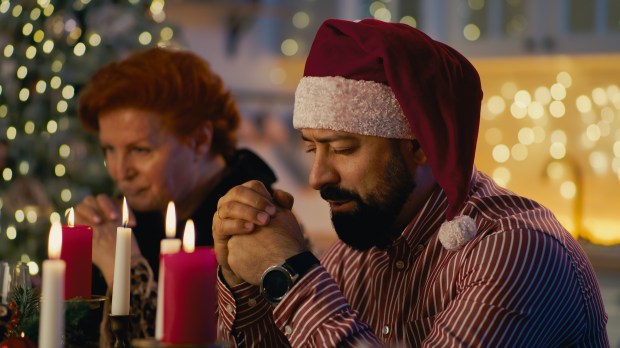Christians for many centuries would focus during the final week of Advent on expelling any devils that may be lurking in the corners of their house and property. They believed in a basic spiritual principle that in order to invite God into their home, they needed to “exorcise” it of any evil influence.
This was not a formal exorcism performed by a priest, but more of a “family” service of prayer, led by the head of the household.
Francis Xaver Weiser explains this Advent custom in his book Handbook of Christian Feasts and Customs.
In some parts of central Europe ancient customs of driving demons away are practiced on the Feast of Saint Thomas the Apostle (December 21) and during the following nights (Rough Nights) … farmers will walk through the buildings and around the farmyard, accompanied by a son or one of the farm hands. They carry incense and holy water, which they sprinkle around as they walk. Meanwhile, the rest of the family and servants are gathered in the living room reciting the Rosary. This rite is to sanctify and bless the whole farm in preparation for Christmas, to keep all evil spirits away on the festive days.
It may seem like a superstitious practice to some, but it reflects an authentic Christian worldview. Demons do exist and they don’t like it when we celebrate such days as Christ’s birth. It would make sense that they would want to do anything in their power to disrupt such a celebration.
This custom recognizes this reality and invokes the power of God to drive the evil spirits away. God is always the one who does the work; we simply invite him to exercise his power.


